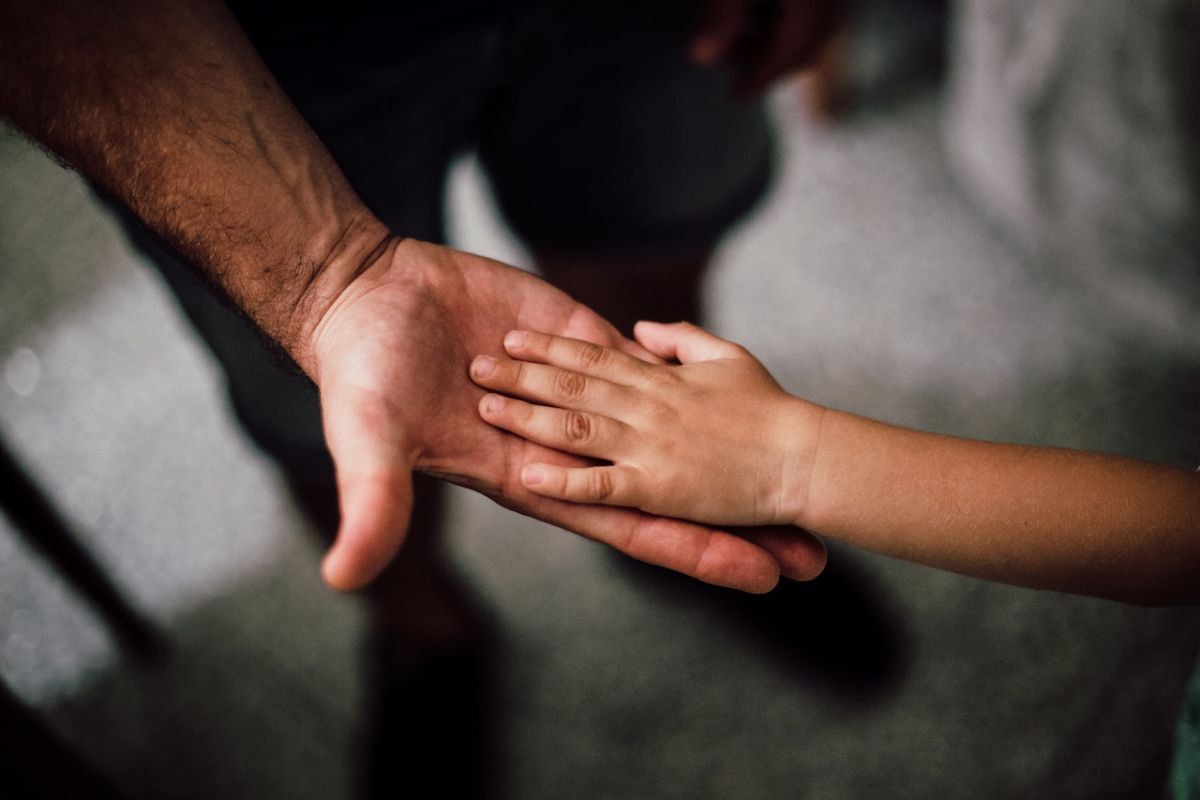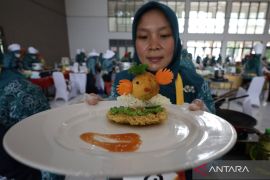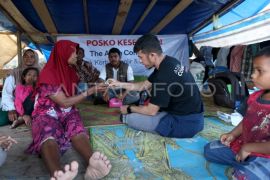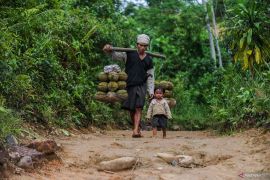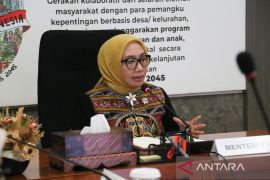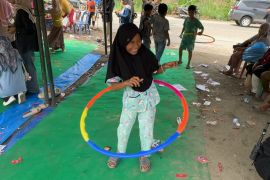Indonesia is one of the countries witnessing a fatherless phenomenon, or the lack of father figure, both physically and mentally in a family.
This phenomenon occurs because in several families, a father is the family's backbone and has to work to provide for the family, while taking care of children at home is the mother's responsibility.
Acting Deputy of Children Rights' Fulfillment at the Ministry of Women's Empowerment and Child Protection Rini Handayani stated that the ministry has encouraged the involvement of the father in taking care of and educating children.
This is undertaken through the HeForShe movement.
HeForShe is a form of the government's commitment in making men more compassionate toward the issue of gender equality.
In addition, the ministry takes action at the grassroots level, namely through the Women and Children Friendly Village (DRPPPA) Program.
The ministry also facilitates the DRPPPA villages to hold competitions concerning innovations that encourage the father's involvement in parenting.
This effort aligns with President Joko Widodo's five instructions mandated for the ministry, such as improving the role of mothers and families in parenting.
Impact on growth
A father's involvement plays a crucial role in optimizing children's growth.
Deputy Chief of the Indonesian Child Protection Commission (KPAI) Jasra Putra deemed that the lack of a father figure while the child is being raised can cause imbalance that affects his or her physical, mental, and spiritual well-being.
An imbalance in life causes stagnating growth that brings certain and deeply-affecting consequences for the children's physical and mental growth.
One of the consequences of losing such a figure is that children can experience depression.
Children, who lost one of their parents, will usually encounter severe challenges in their growth, such as a lack of self-confidence that causes them to have low self-worth in society.
This is especially difficult if the loss of a father figure is experienced by daughters.
This condition leads to instability in understanding emotions or having low emotional intelligence. This will eventually lead to emotional instability.
The lack of a father figure leads to children experiencing difficulties in maintaining proper communication and maintaining relations and experience frequent failure in establishing solid friendships.
Children in such a situation should be assisted to enable them to be strong enough to face the trauma of feeling rejected and not having a father.
Vulnerable family
The best form of parenting for children is through families. However, in reality, not all children can be directly taken care of by their parents, both father and/or mother, in the family.
One of the causes is the factor of family vulnerability, whether it is social, economic, cultural, educational, and religious vulnerability.
The KPAI recorded that in 2021, some 2,279 complaints were recorded, while in 2022, there were 1,960 complaints concerning vulnerable children in families and alternative parenting structure.
This figure can be higher while taking account of a record that shows high divorce rate and high rate of child marriages.
Statistics Indonesia (BPS) recorded that the number of early marriages in Indonesia in 2022 had reached 1.71 million cases.
Meanwhile, 516,344 divorce cases were recorded in the same year. This translates to the fact that around 500 thousand children suddenly lost their parents.
This is despite the fact that the feeling of loss or being left behind by parents also causes prolonged depression in children.
This is because any problems that occur will trigger depression and guilt due to the feeling of being neglected.
Children experiencing depression require meaningful assistance, so as to enable them to untangle what they feel.
On account of this problem, children will be prone to engaging in risky social relations, become trapped in promiscuity, and become drawn to addictive substances as a means to forget about their trauma.
However, instead of being able to forget their trauma, these children end up stuck in the same problem.
Children in this state tend to experience difficulty in being accepted in the working world and are marginalized in friendship.
They are only accepted in places with children experiencing similar risks, thereby exacerbating the existing problems that they have.
In this mental condition, they become addicted to substances and are trapped in risky behavior, which further affects their mental well-being.
These children then exhibit post-traumatic behaviors, such as self-harm, suicidal attempts, and even show dissociative behaviors as well as imagine releasing pain with murder.
If children are already in this condition, they often become trapped in bad decisions since they are looking to end their pain. These children need quarantine and special treatment across different professions that entail high costs.
Nowadays, several recently married couples are keen to have children, but it should be borne in mind that after the child is born, the responsibility of raising it falls on the shoulders of both parents and not just mothers.
All Indonesian families are expected to create a good family environment for the future of Indonesian children, for the sake of achieving Golden Indonesia 2045.
Related news: Fatherless phenomenon affecting family resiliency: BKKBN
Related news: BKKBN strengthens competence of Family Assistance Team in East Java
Editor: Rahmad Nasution
Copyright © ANTARA 2023
